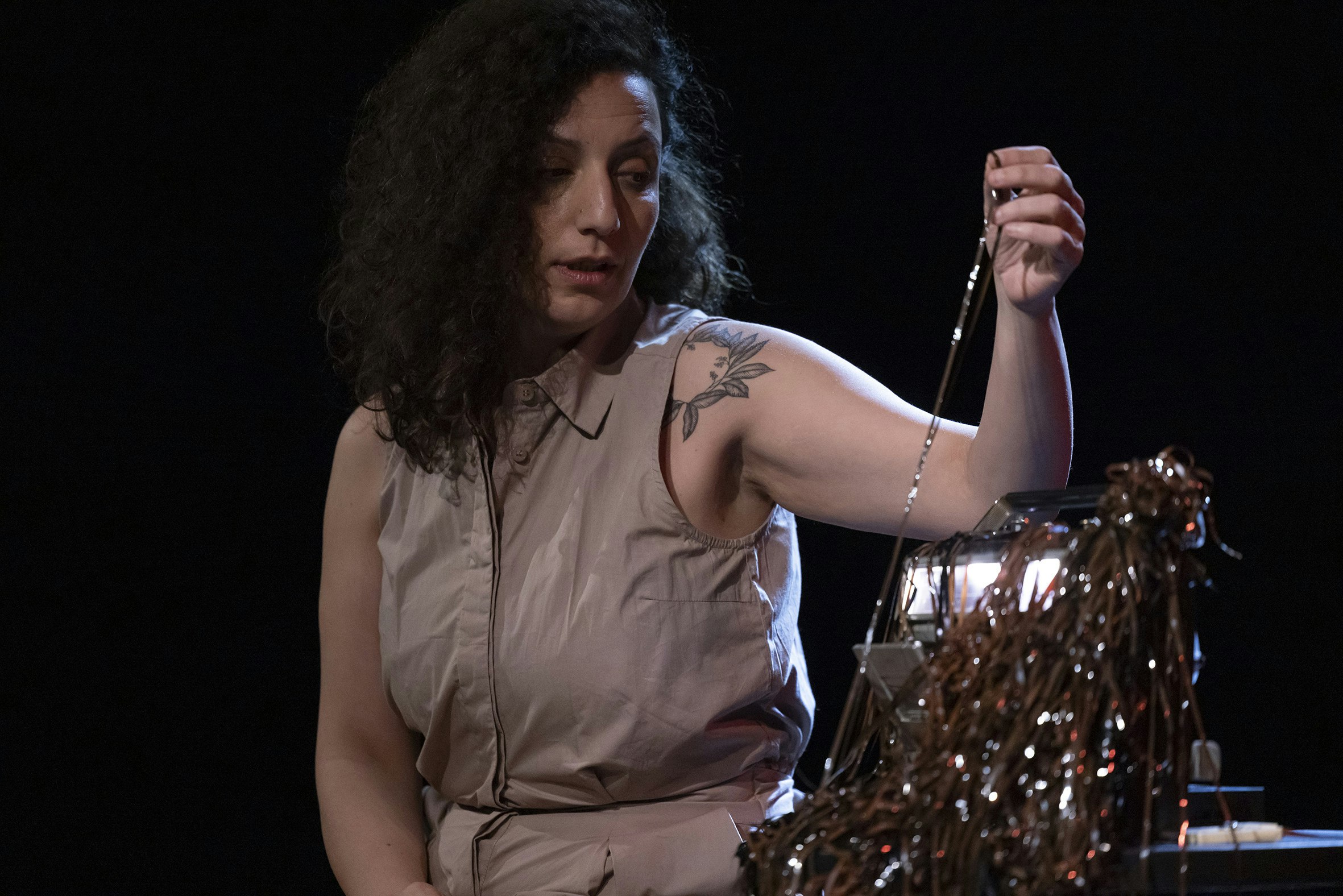Based on the true story of Eva Ståhl, a Swedish nurse and survivor of the massacre at the Palestinian camp of Tel Al Zaatar, Silence, ça tourne looks back on the tragic events of the siege of the camp in 1976. The show is a reflection on the traces left by witnesses to history's great upheavals.
In the summer of 1976, at the height of the Lebanese civil war, the Tel Al-Zaatar Palestinian refugee camp in Beirut, home to 30,000 Palestinian refugees since the 1948 Nakba, was besieged by several thousand Maronite Christian militiamen. They are members of the Phalangists but also of the anti-Palestinian group “Guardians of the Cedar” and the “Marada movement”.
The story of the massacre is told through the testimonies of Eva Ståhl, Youssef el Iraqi, a Soviet-educated doctor and head of the Red Crescent at the camp, who wrote his diary on scraps of paper during the 52-day siege and Anders Hasselbohm, a Swedish war reporter. As events progress, the construction of the camp develops on the set, recorded by magnetic tapes, to culminate in the siege of the camp and the massacre. Silence, ça tourne sheds light to a moment in history that never ceases to perpetuate itself, giving it a form, a voice, a face...
Artistic team:
Writing and acting: Chrystèle Khodr
Stage direction: Nadim Deaibes and Chrystèle Khodr
Set design and lighting: Nadim Deaibes
Sound: Ziad Moukarzel
Production:
Riksteatern, Théâtre des 13 vents CDN Montpellier
Coproduction:
Théâtre National Wallonie-Bruxelles, Teatre Nacional de Catalunya Barcelone
With support from:
Hammanah Artist House
Performances supported by CommonMOB, as part of Common Stories, a Creative Europe programme funded by the European Union.
Touring dates
- Riksteatern, Stockholm, 21 February to 15 April 2024
- Théâtre National Wallonie-Bruxelles, 18 to 22 November 2025
- MC93, Bobigny, 26 to 30 November 2025
Chrystèle Khodr, director, author and performer
Chrystèle Khodr lives in Beirut. Her work answers the urgent need to rebuild a collective memory from personal stories and archive fragments. In her most recent projects, Chrystèle Khodr is increasingly interested in the movement of History and its impact on temporality and narrative as a formal dimension of theatre. Between 2009 and 2012, she created intimate play formats and solos: Bayt Byout, 2007 ou comment j'ai écrasé mes enveloppes à bulles and Beyrouth Sépia. She co-wrote and directed Titre Provisoire in 2017. Then in 2021, Augures, which gives a voice to two great figures of theatre, reconstructing the theatrical movement during the years of civil war.
As part of her research on the Lebanese economic crisis, she created the diptych La Montée et la chute de la Suisse d'Orient and Qui a tué Youssef Beidas? Her latest play, Ordalie, tells the story of organised amnesia in a country where the frenzy of reconstruction prevails over essential memory work.
Nadim Deaibes, director, set and lighting designer
Nadim Deaibes lives in Lebanon. In his eclectic career, he explores issues related to performance art theory and notions of the collective in theatre. He has worked as a technical director for several venues, dance and music festivals.
As a set and lighting designer, he collaborates with a number of theatres and video artists, as well as dance companies and visual artists: Cie Zoukak, Mounira Al Qadiri. Joanna Andraos and Wissam Koteit. In recent years, Nadim Deaibes has been closely involved in the work of writer-director Chrystèle Khodr, with whom he designed Qui a tué Youssef Beidas? and composed the solo Silence, ça tourne.
Wishing to facilitate collaboration between the technical professions and contemporary art creators, Nadim Deaibes founded ATOM, a collective of technicians and craftsmen dedicated to the artistic sector in Lebanon.
